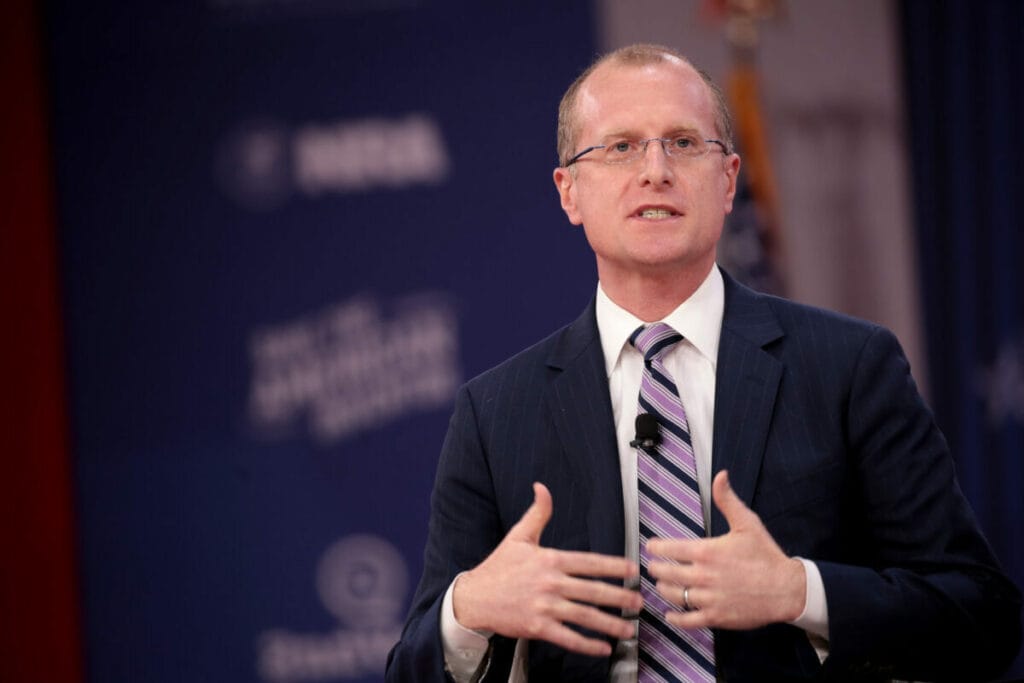D.C. Attorney General Sues Zuckerberg, Carr Criticizes Infrastructure Bill Details, Vermont to Expand Fiber Builds
The lawsuit comes years after Facebook was found to have been used to harvest personal data for political purposes.
Benjamin Kahn

May 23, 2022 – On Monday, Washington D.C. Attorney General Karl Racine sued Meta CEO Mark Zuckerberg for alleged consumer privacy violations revealed during the Facebook-Cambridge Analytica scandal that broke in 2018.
In his office’s filings with the D.C. Superior Court, Racine argued that “Facebook is far from a disinterested platform” and that it “[derives] enormous wealth from acquiring and monetizing the data of [billions of people] leading their lives in Facebook’s digital ecosystem.
“But even that is not enough,” the filing read. “Facebook is in a relentless pursuit to expand its reach on humanity and bring an ever-increasing number of people under its influence.”
To that end, the filings stated that “Cambridge Analytica used the Facebook Platform—in a way that Facebook and Zuckerberg encouraged—to influence and manipulate the outcome of a United States presidential election.”
As co-founder, CEO, chairman, and majority voting shareholder (Zuckerberg holds 60 percent of Meta’s voting shares according to the filings), Racine stated that Zuckerberg “maintains an unparalleled level of control over the operations of Facebook,” and thus bears the responsibility for its actions.
FCC Commissioner Carr says NTIA broadband infrastructure details picks “winners and losers”
Federal Communications Commissioner Brendan Carr released a statement expressing concern that the application details for broadband funding under the infrastructure bill released this month prioritizes one technology over others.
“[The notices of funding opportunity] will prevent states from funding projects that could quickly bridge the digital divide using those high-speed technologies in nearly all cases—putting too much of a thumb on the scale for fiber builds that provide robust service but can take years to build out in certain cases,” Carr said in a statement Thursday, but added, “I have no doubt that fiber projects would demonstrate their value in the lion’s share of cases.”
The week prior, the National Telecommunications and Information Administration’s released those funding details, which included an answer to a question about its technology preference for the builds. “With respect to the deployment of last-mile broadband infrastructure, the Program prioritizes projects designed to provide fiber connectivity directly to the end user,” the Commerce agency said in the 98-page NOFO.
Carr stated that this will “undoubtedly waste taxpayer dollars and leave families waiting on the wrong side of the digital divide.”
The Republican commissioner also condemned what he perceived as rate regulation and overbuilding.
“In the end, the Administration’s decision to pursue those political goals—rather than focusing on connecting the largest number of people as quickly as possible—will exacerbate the supply chain challenges and workforce shortages that already pose a hurdle to getting the job done.”
Vermont governor announces fiber grants
On Monday, Vermont Republican Gov. Phil Scott announced broadband grants totaling more than $16 million.
The grants will be focused on deploying more than 9,000 miles of fiber across Bolton and several other towns in the northeast corner of Vermont.
Scott was set to be joined by Vermont’s at-large congressional representative Democratic Rep. Peter Welch at 12 noon ET in Jericho, Vt., to formally unveil the project in question.









Member discussion